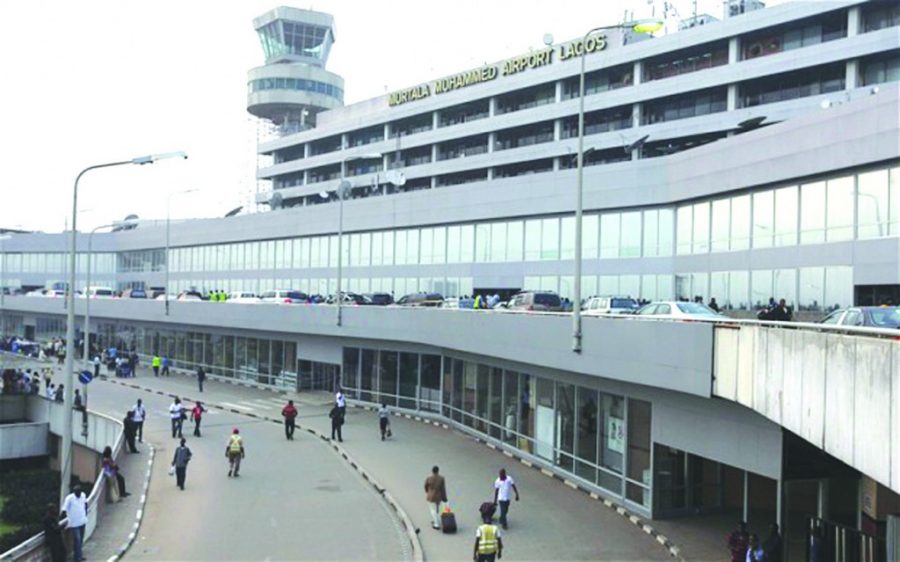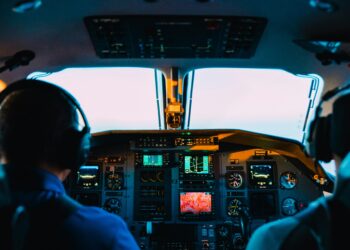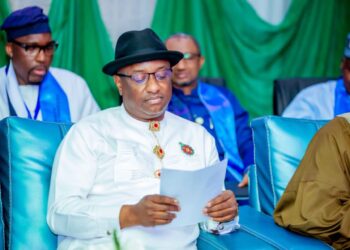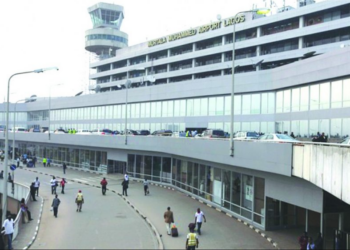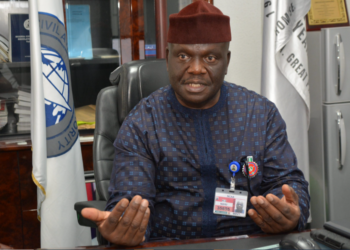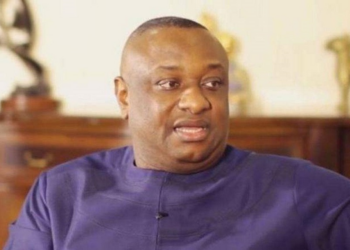The Airline Operators of Nigeria (AON) have said that the current high and multiple charges, taxes and levies imposed on the airlines by different government agencies and organisations are some of the factors militating growth in the sub-sector.
The body also said that the agencies as currently composed are overstaffed with unnecessary personnel, thereby adding to the high wages of the parastatals.
Speaking at a seminar organised by aviation correspondents today in Lagos, Capt. Roland Iyayi, a member of AON, said that charges, taxes and levies from Nigeria are one of the highest anywhere in the world.
According to him, the International Civil Aviation Organisation (ICAO) in one of its submissions about two decades ago, rated Nigeria as one of the countries with the highest charges and levies in the world.
Iyayi, who is also the Chief Executive Officer (CEO) of TopBrass Airlines, regretted that 20 years later, the charges remain the same.
He attributed these to the quick collapse of Nigerian airlines and urged the government to reverse some of its levies on the airlines in order to encourage growth in the sub-sector.
An investigation by Nairametrics indicates that there are over 30 levies, charges and levies collected from the airlines by various organisations in and outside the sector.
Organisations like the Federal Airports Authority of Nigeria (FAAN), Nigeria Civil Aviation Agency (NCAA), Nigerian Airspace Management Agency (NAMA) and the operator of the Murtala Muhammed Airport Two (MMA2), Lagos, Bi-Courtney Aviation Services Limited (BASL) collect different levies from the airlines.
The levies are divided into aeronautical and non-aeronautical revenues and are added to charges collected from passengers as air tickets by the airlines.
Twenty-one of the charges are paid into the coffers of FAAN, six are paid into NCAA, NAMA collects three while Bi-Courtney collects four of the charges from the airlines that operate at its terminal.
The breakdown of aeronautic charges included aircraft inspection, which is tickets and Duty Tour Allowance (DTA) paid to the coffers of NCAA. The DTA depends on the country the aircraft is being inspected.
Also, landing charges are divided into two; day and night. During the day, airlines pay N25 per Kg kilogramme of the aircraft weight while they are charged N37.5 per kilogramme of the aircraft at night. FAAN collects the charge from airlines.
Also, FAAN collects about N400 per weight of aircraft after 30 hours from airlines as parking charges while the agency also collects between $40 and $50 from airlines for using the Avio Bridge.
For en-route charges, FAAN charges $70 from airlines on international routes while it collects about N3,000 for carriers on domestic routes.
Indigenous airlines are compelled to pay NAMA $75 as a charge for over-flight while it equally collects $195 from airlines that operate international or regional flights outside the country while N6,000 is remitted by indigenous airline operators for the same terminal charge. The aeronautic agency also collects clearance fees for indigenous airlines.
Besides, N2, 500 per passenger is remitted to the purse of BASL as Passenger Service Charge (PSC) for any air traveller airlifted by airlines at the terminal.
The terminal operator also collects $50 from airlines for using its Avio bridge while it collects another $50 as extended Avio bridge usage.
Also, BASL collects $00.50 from operators as a check-in counter fee.
The breakdown of non-aeronautic charges indicates that the NCAA collects 5 per cent of total fare from airlines as Ticket Sales Tax (TST), and another 5% each as Import and Export Charges for domestic operators.
The regulatory authority also charges airlines 10 per cent each as Import and Export Royalties.
Also, FAAN collects N2,000 for domestic operations and $50 for international operations as Passenger Service Charge (PSC), and charges N12 per kilogramme as a Ports Charge.
The same agency collects N5 per kilogramme as Export Charge, N20 per kilogramme on Courier/Tarmac/ Pre-Release and N5 per kilogramme as Air Cargo.
Other charges from FAAN are N5 per kilogramme as shipment, N50 per kilogramme as Terminal Charge while it equally collects 5% on turnover on behalf of the Ministry as Concession Fee, 20% or rent as service recovery charge’ N500,000 per office as processing fee, PHCN charges and 75% as electricity charge, N2.50 per litre as fuel surcharge and between 125,000 to N150,000 in Port Harcourt, Lagos and Abuja as apron pass from each of the indigenous airlines.
Besides, Iyayi argued that the new Nigeria Civil Aviation Regulations (Nig. CARs), which stipulate six aircraft for startup airlines in the country, was a recipe for failure.
According to him, any airline that commences operations with six aircraft was doomed to fail and called on the Nigeria Civil Aviation Authority (NCAA) to reverse the policy, which he also described as anti-business.
- He said: “The Nigerian aviation industry needs good policies to be put in place by the government for the benefit of the industry. For instance, the new regulations say that you must have at least six aircraft as a start up airline before you can be issued an Air Operator’s Certificate (AOC). Starting with six aircraft is a sign of failure.
- “Emirates Airlines, for instance, started with just two leased aircraft and today, it has over 200 aircraft in its fleet. We have never planned in this country and everything we do has been chaotic. This policy is reactive and should be reversed by the NCAA.”

